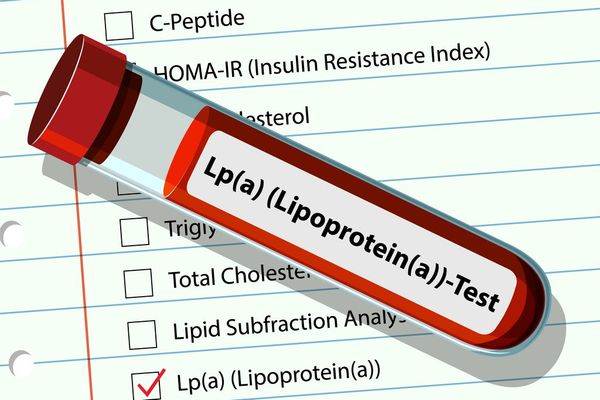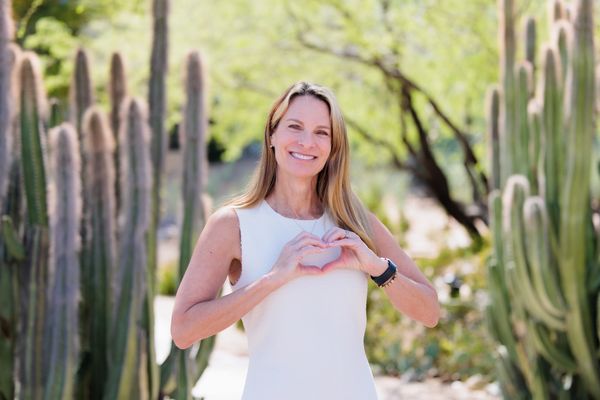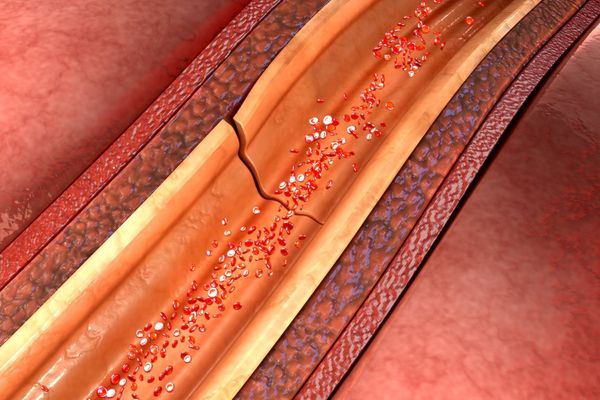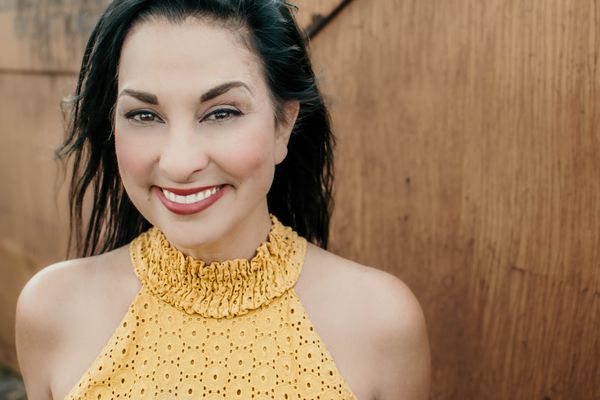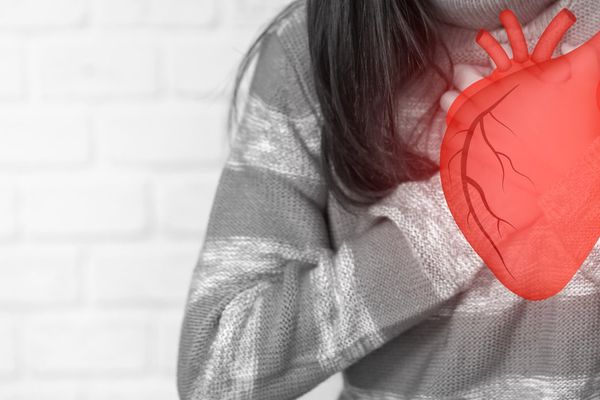By Kimberly Rex
This story is part of our Real Women, Real Stories series, documenting the lived experiences of women along their health journeys. Please always consult your health care professional with personal concerns or questions.
At first, doctors thought I merely had a hole in my heart. They told my mother this news a day or so after I was born. She cried and stressed and freaked out alone and later, when my father arrived after work, they cried and stressed and freaked out together. But they felt calmer when we were discharged a few days later. The doctors said the hole would probably close on its own.
It wasn't until two weeks later, when they took me to a pediatric cardiologist at NYU, that they learned how much was really wrong. It was there that they were told I had tetralogy of fallot (TOF), a combination of four defects that hinder the flow of well-oxygenated blood to the rest of the body. They learned too that my heart was turned backwards toward my spine, pulling and stretching my arteries. My first open heart surgery, when I was sixteen months old, was difficult. It took longer than planned when doctors found a more complicated anatomy than they expected. The same was true of my second at age sixteen, and my third at age 28. My fourth went smoothly.
My heart condition has always been there, but it didn't really affect me until I became an adult. As a child, I always fell asleep before my friends and often wanted to stop swimming first or stop playing outside to go sit inside and read a book, but I never realized this may have been because I was more tired than other kids.
As I grew, my heart problems grew too. In high school, I needed a pacemaker and implantable cardioverter defibrillator. After receiving my first shock from this device at twenty years old, I started suffering from anxiety and depression. Suddenly, my heart condition was loud and blaring and scary. I struggled to accept it and its complete permanence.
A turning point came when I met my husband. I learned on my own and with him how to handle my fear. After starting a family together, my biggest daily obstacle was no longer anxiety, but fatigue. These days, I am always tired. Most women I know with congenital heart disease are always tired. With a weakened left ventricle and a strong dose of beta blockers, I often need naps during the day. Some days, I simply think I'm as tired as any mother pushing 40 with a four-year-old and an eight-year-old. Other days, the tired is all I am, and it's not possible to do anything but stop and rest.
But I'm lucky—I have help. I have a friend who brings my older daughter to school each week and sisters who will run errands, one who helps me with picking up and dropping off my kids. I have a mother who cleans my house and does my laundry and dances around with my kids when I can't. And I have a husband who will work all day with overtime and still come home and take over, do the dishes without my asking, and let me sleep in on the weekends.
This help means even more to me now during the current pandemic. I am someone who could become seriously ill or die from COVID-19. I can't go out. I won't take the risk when I have two beautiful daughters at home. But I don't have to leave my house. Someone else will get my groceries. Someone else will pick up my medicine at the pharmacy.
But I know there are others who are vulnerable and don't have the same help. Over one million adults are living with CHD, and many more suffer from other underlying conditions. This is why we need the young, healthy people to do their part during this crisis. People have to stay home if they can. People have to stay home whenever they can. Because someone like me—someone whose heart, or lungs or immune system or kidneys, aren't strong enough to face COVID-19—may not have help. That man in the checkout line may have to go to the store himself to get food. He may be forced to pick up the medication he needs to survive. He may need to visit his doctor. And he needs the best possible chances of avoiding this virus. He needs others to stay inside and away from him whenever they can, so he can leave home when necessary.
If you're lucky to be strong and healthy, this is why what you do matters, and why our future lies with you. You are the ones who will determine the magnitude of this frightening pandemic. You hold the power to slow the spread of the virus and prevent more fatalities. I'm asking you, on behalf of everyone with underlying health conditions, to step up, stay inside, and use your power well.
Kimberly Rex is a freelance writer who lives in New York with her husband and two daughters. Her creative nonfiction has appeared in The Independent, SELF, Huffpost, and Teen Vogue among others. Find her on Facebook, Instagram, and Twitter.


